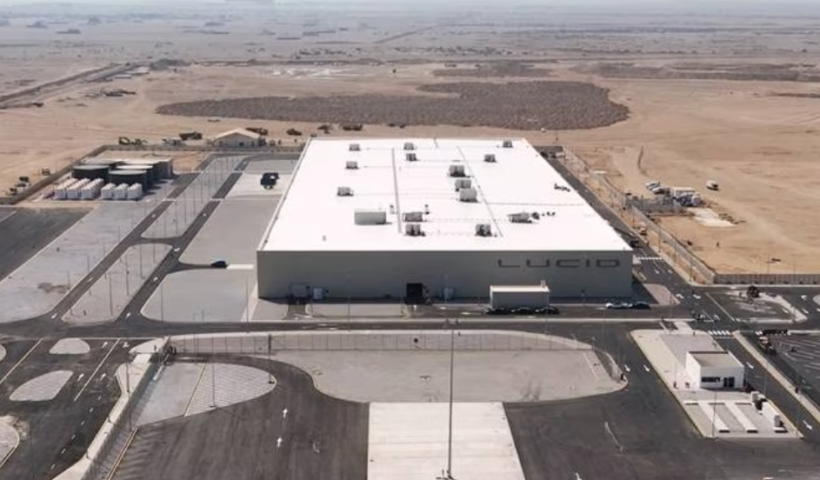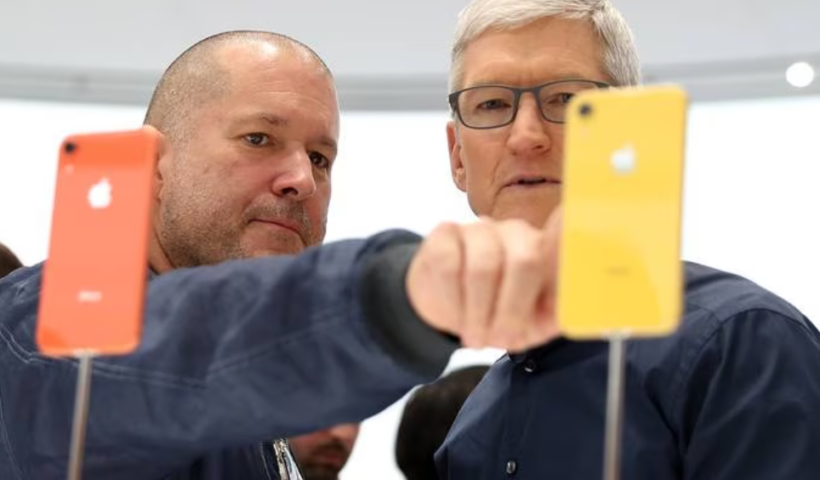The Jeddah plant’s capacity will rise from 5,000 to 155,000 units annually, according to a California-based corporation.
The first worldwide manufacturing facility for luxury electric vehicle manufacturer Lucid Group has opened in Saudi Arabia. The facility is projected to produce 155,000 electric vehicles annually.
The California-based business, supported by Saudi Arabia’s Public Investment Fund, has begun assembling its first luxury sedan, the Lucid Air, at the facility outside of Jeddah, according to a statement released by Lucid Group on Wednesday.
According to the corporation, the facility in the King Abdullah Economic City (KAEC) is the second advanced manufacturing plant (AMP-2) for Lucid, with the first (AMP-1) being in Arizona.
The AMP-2 has the ability to semi-knock down assemble “5,000 Lucid vehicles annually”. Currently, it assembles pre-manufactured Lucid Air car kits from AMP-1.
According to Peter Rawlinson, chief executive and chief technology officer of Lucid, “our facility will pave the way for the country’s electric automotive industry and the expansion of the supply chain as Saudi [Arabia] charges towards its Vision 2030.”
In doing so, the government will “support the vision for a more sustainable and diversified economy in the nation.”
According to Goldman Sachs, the global market for new cars will be dominated by electric vehicles by 2035 as efforts to achieve net-zero carbon emissions pick up speed.
According to an International Energy Agency estimate, sales of electric cars exceeded 10 million last year, indicating that the sector is expanding rapidly. In 2022, 14% of all new automobiles sold were electric, up from less than 5% in 2021 and roughly 9% in 2022, according to the report.
Global sales of electric vehicles increased by almost 25% during the first quarter of this year to more over 2.3 million units, according to the agency.
In 2007, Lucid was established. In order to acquire a sizeable part in the business and advance its manufacturing goals, the PIF invested more than $1 billion in the company in 2018.
In July 2021, Lucid became the first EV start-up to IPO via a special-purpose acquisition company.
According to Lucid, the KAEC project is also anticipated to hasten Saudi Arabia’s strategic objective to reform and diversify its economy through the advancement of environmentally friendly energy and transportation.
According to Faisal Sultan, vice president and managing director Middle East at Lucid Group, “AMP-2 in KAEC… gives us the ability to efficiently fulfil the recently signed agreement with the government of Saudi Arabia to purchase up to 100,000 vehicles over a 10-year period, with an initial commitment to purchase 50,000 vehicles and an option to purchase up to an additional 50,000 vehicles over the same period.”
Agreements for the factory were inked in March of last year by the US-listed Lucid, the Saudi Industrial Development Fund, and KAEC.
By the second half of this decade, the business wants to construct whole vehicles at the Saudi plant, increasing production to 150,000 units yearly.
Through a deal with the Saudi Human Resources Development Fund, Lucid also plans to hire “hundreds of Saudi nationals in the first few years and eventually grow the workforce into the thousands”.


